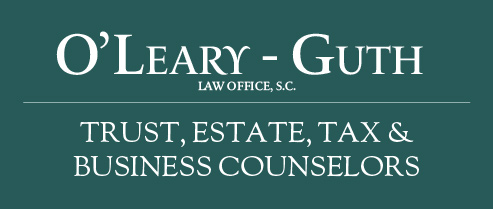Tax-Wise Giving With a Donor Advised Fund
Posted: March 2, 2022
Overview of Donor Advised Funds
A Donor Advised Fund (“DAF”) is an account established to receive funds intended for charity. An individual (the “Donor”) can create and contribute to a DAF with a financial institution (the “sponsoring organization”) that distributes those assets to charity(s) at some future date. The IRS grants the Donor a tax deduction in the year of the contribution to the DAF, even though the donated funds may not be distributed from the DAF to other charities for years to come.
After the contribution, the Donor (or a party chosen by the Donor) acts as the fund’s “Advisor.” The Advisor may make recommendations to the sponsoring organization regarding which charities should receive the assets, the amount of each distribution to charity, and the timing of such distributions.
The popularity of DAFs has increased dramatically in recent years. Total assets in DAFs have more than quadrupled over the past decade, to more than $140 billion. DAFs can be a good fit for Donors with charitable intentions who want to give away a portion of their wealth now for a number of (often tax related) reasons, but want to wait to decide on the precise charities the Donor wishes to fund. In many cases, Donors prefer to give to DAFs over gifts to traditional charities or foundations.[1]
Do Not Forget to Name Successor Advisors
Donors of a DAF are cautioned against naming only themselves as Advisors, with no successor Advisors named. This is because that, contrary to what many people think, the Donor’s estate planning agents (i.e., their Trustee, Executor, or Power of Attorney agents) are not entitled to fill a vacancy that would result if the Donor was unable to act as the Advisor due to death or disability. Rather, in such cases the sponsoring organization’s rules typically dictate who becomes successor Advisor if the Donor fails to name a successor, with the selection they make often favoring the sponsoring institution or affiliated parties to them. This is why it is essential to understand your sponsoring organization’s succession rules and to name a successor Advisor if you want to chart a different course.
For example, if your DAF is established with Fidelity Charitable, your named successor can be any individual(s), including your spouse, child, other descendants, representatives, or an IRS-qualified 501(c)(3) public charity. Later, your successors can name their own successors to continue the tradition of giving for generations to come. However, if you do not name a successor, then upon your passing the balance of your DAF will be distributed in accordance with the Fidelity Charitable Trustees’ Initiative.[2] While that may be a good cause, if that is not what you want for your DAF then you should name a successor Advisor during your lifetime.
Conclusion
In the proper situation, a DAF is a powerful charitable planning tool. If you would like to discuss if a DAF might be a good fit to help you accomplish your charitable objectives during your lifetime and in connection with your estate plan, please feel free to reach out to us. We would be happy to discuss with you.
Schedule an appointment with us today.
Meet with a knowledgeable attorney who specializes in your area of law.
1251 W. Glen Oaks Lane, Mequon, WI 53092
F: (262) 238-6999
